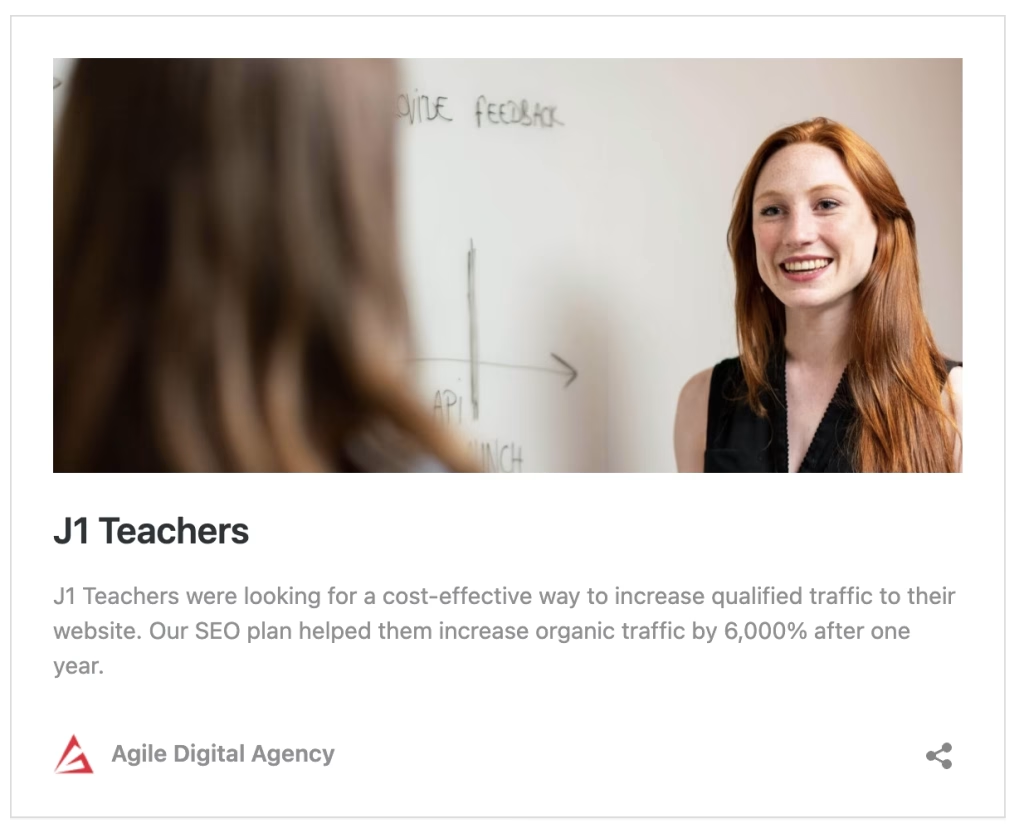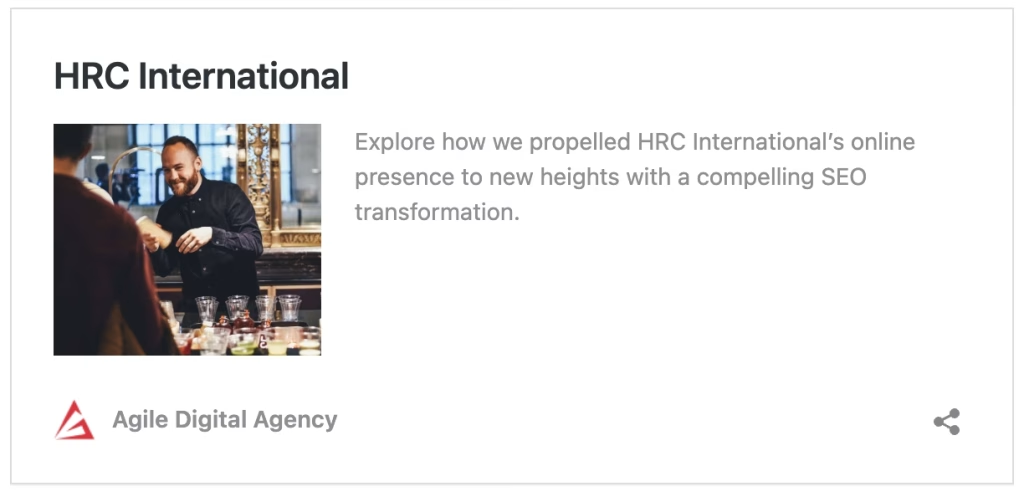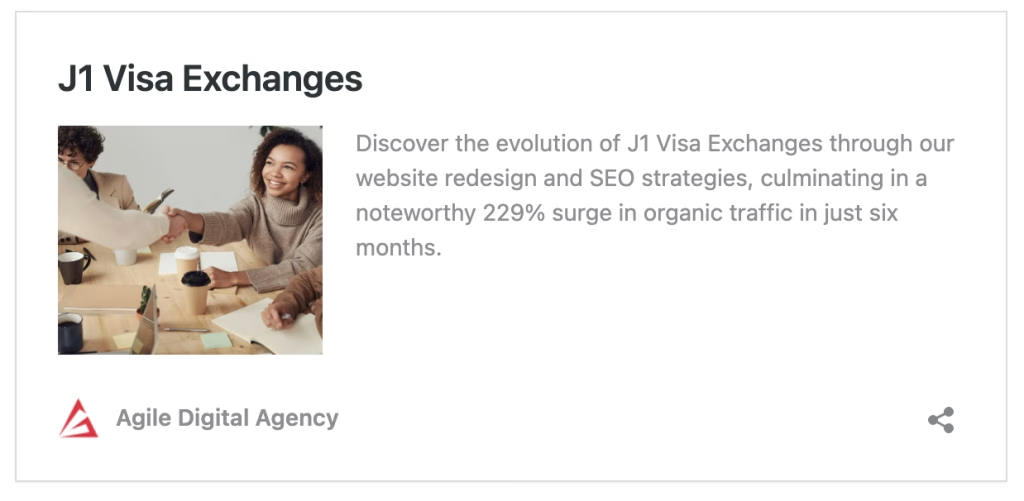Hospitality SEO: How to Rank Higher and Get More Bookings
In the competitive world of hospitality, having an attractive website is just the beginning—you need a strong SEO strategy to ensure your business is visible to potential customers. If your hospitality or education business isn’t showing up in search results, you’re likely losing bookings and clients to competitors.
This guide provides actionable SEO strategies tailored to hospitality businesses, helping you attract more visitors and convert them into loyal customers.

In this article:
1. Understand Your Audience and Optimise Your Website Accordingly
Before diving into SEO tactics, it’s essential to understand your audience—what are they searching for? Hospitality businesses cater to diverse groups like travellers, corporate clients, job seekers, and students. By tailoring your website’s content, structure, and user experience to meet their needs, you’ll be one step closer to higher rankings.
Fix Technical SEO Issues for Better Crawling and Indexing
Google needs to find, crawl, and index your site efficiently. Here’s how you can check if your pages are indexed:
- Search “site:yourwebsite.com” on Google to see which pages are listed.
- Use Google Search Console to identify crawl errors and indexing issues.
- Fix broken links, implement redirects, optimise page speed, and ensure mobile responsiveness.
💡 Pro Tip: A fast-loading website improves both user experience and SEO rankings. Use tools like Google PageSpeed Insights to identify areas for improvement.
Research and Implement the Right Keywords
Once technical issues are resolved, conduct keyword research to align your website with what potential guests or clients are searching for.
Move beyond branded keywords to attract a wider audience:
- Use Google Keyword Planner to find relevant search terms like:
- “luxury hotel internships in London”
- “fine dining job placements in Paris”
- “hospitality management training courses”
- Analyse competitors and target a mix of short-tail and long-tail keywords. Target specific phrases, such as “J-1 visa sponsor for internships abroad” to attract niche audiences.
- Implement keywords naturally in meta titles, headings, and content.
Optimise Your Key Pages
Your homepage and service pages should be structured to attract and convert visitors.
Your homepage and service pages should be designed not just to attract visitors but also convert them into customers.
Checklist for optimising key pages:
✅ Clear headlines with primary keywords.
✅ Engaging meta titles and descriptions that encourage clicks.
✅ Structured data (schema markup) for enhanced visibility in search results.
For more insights, see our guide on web design and SEO.

2. Content Strategy: Attract and Convert Visitors
Once your foundational SEO is in place, it’s time to create a content strategy that drives traffic while guiding visitors toward conversion-focused pages.
Create Top-of-the-Funnel (TOFU) Content
Hospitality businesses thrive on engaging content that informs and inspires potential customers during their research phase. Examples include:
- “How to Find the Best Hospitality Internships Abroad”
- “5-Star Hotel Marketing Trends for 2024”
- “What to Look for in a Hospitality Training Programme”
Link Content to Money Pages
Every blog post should strategically link back to conversion-focused pages (e.g., job placement services or hotel booking pages). This internal linking helps move users from general-interest content to actionable steps.
For businesses operating across multiple regions, create localised service pages tailored with region-specific keywords (e.g., “hospitality internships in London”) to boost local search rankings.

3. Build Trust and Authority in the Hospitality Sector
Trust is a critical factor in hospitality. Customers rely on reviews, recommendations, and industry authority when making decisions.
Google Reviews: A Key to Success
Positive reviews don’t just build credibility—they also improve local search rankings. Encourage satisfied customers to leave reviews by:
✅ Sending automated review requests after bookings or placements.
✅ Responding professionally to both positive and negative feedback.
✅ Using QR codes at venues or events that link directly to review platforms.
Read our guides on Google reviews and their impact and removing fake reviews.
Strategic Link Building
Building backlinks from authoritative sources can significantly boost your website’s credibility. Effective strategies include:
- Partnering with travel blogs for guest posts.
- Getting listed in industry directories or hospitality job boards.
- Publishing press releases about company achievements or events.
💡 Pro Tip: Avoid spammy link-building tactics—they can harm your rankings instead of helping!

4. Stay Ahead with AI-Driven Search and Voice Search Optimisation
The future of SEO is here—AI-driven search engines are transforming how users find information online. Hospitality businesses must adapt quickly.
Optimise for AI Overviews

Google’s AI-generated summaries prioritise high-quality content that answers user queries directly. To rank well:
✔ Use structured data (FAQs, how-to guides) for clear answers.
✔ Keep content fresh by updating it regularly with industry trends.
✔ Address common user questions concisely.
For more on AI search trends, see our article on SEO for AI-driven search.
Voice Search Optimisation

Many travellers rely on voice search when looking for services like hotels or internships abroad. To optimise for voice search:
- Use conversational keywords (e.g., “Where can I find luxury hotel internships?”).
- Ensure your Google Business Profile is accurate and up-to-date.
💡 Pro Tip: Voice search queries often include questions—structure your content around FAQs for better results.
See more insights on voice search and emotional intelligence.
5. Promoting Your Hospitality Business Effectively
SEO alone is not enough; businesses must actively promote their services for greater visibility.
Multi-Channel Promotion
Here are three key channels hospitality businesses should leverage:
- Social Media: Use platforms like Instagram, LinkedIn, and Facebook to showcase success stories and engage with audiences.
- Email Marketing: Send newsletters featuring job opportunities, training programmes, and customer testimonials.
- Paid Advertising: Invest in Google Ads and social media campaigns targeting hospitality professionals and employers.
Discover more business promotion strategies.
Conclusion
A strong SEO strategy is essential for success in the hospitality sector—but it requires a multi-faceted approach that includes technical optimisation, high-quality content creation, trust-building tactics, AI adaptation, and effective promotion strategies. By implementing these tips, you’ll not only attract more customers but also establish yourself as a trusted authority in the industry.
Looking for expert digital marketing solutions tailored specifically for hospitality businesses? Explore our Digital Marketing for Hospitality & Education services today—we’ll help you elevate your online presence and drive measurable results!
Agile is an independent Digital Marketing Agency headquartered in London, specialising in web design and search engine optimisation. Our proficiency is underscored by several HubSpot Certifications, and we take pride in being recognised as a 2023 Global Award Winner for SEO by Clutch. At the heart of our success lies a team that seamlessly navigates the intersection of technology and marketing, ensuring innovative and impactful solutions for our clients.
Related
Articles


